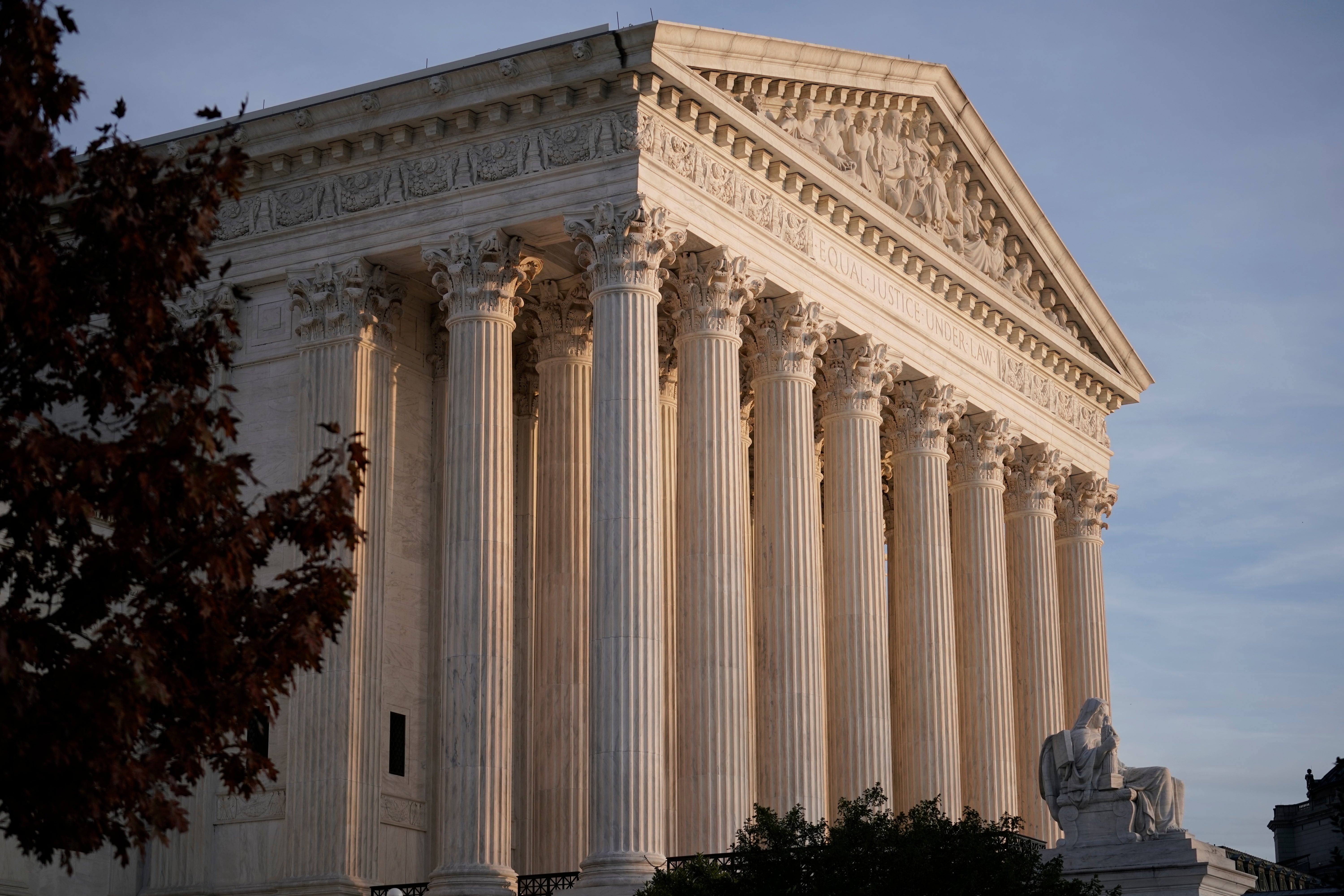Supreme Court skeptical about patent judge appointments
The Supreme Court seems likely to find that the judges who oversee patent disputes are not properly appointed

Your support helps us to tell the story
From reproductive rights to climate change to Big Tech, The Independent is on the ground when the story is developing. Whether it's investigating the financials of Elon Musk's pro-Trump PAC or producing our latest documentary, 'The A Word', which shines a light on the American women fighting for reproductive rights, we know how important it is to parse out the facts from the messaging.
At such a critical moment in US history, we need reporters on the ground. Your donation allows us to keep sending journalists to speak to both sides of the story.
The Independent is trusted by Americans across the entire political spectrum. And unlike many other quality news outlets, we choose not to lock Americans out of our reporting and analysis with paywalls. We believe quality journalism should be available to everyone, paid for by those who can afford it.
Your support makes all the difference.The Supreme Court on Monday seemed likely to find that the judges who oversee patent disputes are not properly appointed, a case important to patent holders and inventors including major technology companies
The question for the justices has to do with more than 250 administrative patent judges who make up the Patent Trial and Appeal Board, which was created by Congress in 2011. The court's decision could be disruptive to the functioning of the board, which issues hundreds of decisions a year. The justices' decision could also potentially affect more than 100 other similarly-appointed officials.
The case involves the Constitution’s Appointments Clause which lays out how government officials can be appointed. As the size of government has increased, a growing conservative legal movement has objected to unelected officials wielding vast amounts of power. Appointments Clause challenges have been one way to check that power.
On Monday, the court's conservative justices suggested that the administrative patent judges' appointment is problematic. Justice Brett Kavanaugh said during arguments that the decisions the judges make are “multi-million, sometimes billion-dollar, decisions being made not by someone who's accountable in the usual way” required by the Constitution's Appointments Clause.
And Justice Samuel Alito at one point suggested where the court seems to be headed by saying “let's assume that we agree...that this current scheme violates the Appointments Clause.” The justices were hearing arguments by phone because of the coronavirus pandemic.
The Supreme Court has recently agreed to hear a string of separation of powers cases involving the appointment and removal of various officials. This term, the court has three cases that touch on the issue. But last term, even when the court found a separation of powers issue, it avoided making a decision with any dramatic consequences.
In the current case, the justices are being asked to decide whether administrative patent judges exercise significant authority so that they are so-called principal officers of the United States rather than inferior officers. Principal officers must be appointed by the president and confirmed by the Senate while inferior officers can be appointed by a department head. Currently, the judges are appointed by the Secretary of Commerce. The Biden administration is arguing that the judges are properly appointed inferior officers.
Though it seemed that a majority of the justices were likely to disagree, it wasn't clear what they would do as a result. If the court finds the judges' appointment problematic, Congress could correct the problem with legislation, but Justice Neil Gorsuch suggested “that could take a long time.”
The justices also discussed a lower court's solution, making the administrative patent judges inferior officers by invalidating a portion of the federal Patent Act which restricts their firing. Justice Amy Coney Barrett described that as the “cleanest” solution.
The specific case the justices heard Monday involves medical device company Arthrex. The Naples, Florida-based company patented a surgical device for reattaching soft tissue to bone. Arthrex sued a British company, Smith & Nephew, for patent infringement in 2015. The companies ultimately settled, but Smith & Nephew challenged Arthrex's patent.
During that challenge before the Patent Trial and Appeal Board, a panel of three administrative patent judges sided with Smith & Nephew and found Arthrex's claims unpatentable. Arthrex appealed, arguing the judges were unconstitutionally appointed, and a federal appeals court agreed.
A decision by the Supreme Court in the case is expected by the end of June.
Subscribe to Independent Premium to bookmark this article
Want to bookmark your favourite articles and stories to read or reference later? Start your Independent Premium subscription today.